Miles and miles of coastline with small and charming beaches, deserts with large dunes where you can enjoy a variety of activities, an absolutely exquisite gastronomy, unique accommodation, a rich historical and cultural heritage… and all with a strong commitment to sustainability! All this and much more awaits you in Morocco!
Unique accommodation
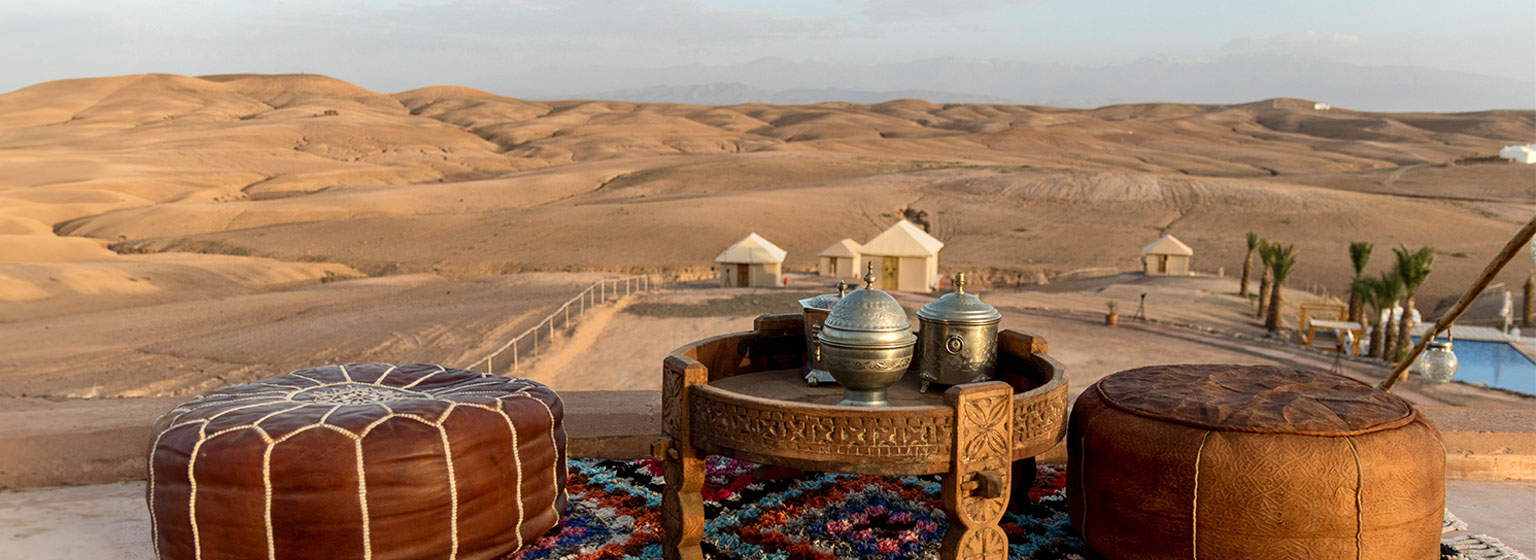
Agafay desert
Morocco offers a wide variety of accommodation where you can fully immerse yourself in the Arab-Moorish culture, such as riads and kasbahs, houses or small palaces with typical Moroccan architecture and decoration, with beautiful interior courtyards to make your stay unforgettable and truly unique.
If you long ofr the incredible experience of sleeping under the stars in the middle of the desert, Morocco offers many options for sleeping in tents in the middle of the dunes with all the necessary comforts. This activity can be done in the deserts of Agafay and Merzouga, where local guides will give you detailed information about the night sky and delight you with typical Amazigh dishes from the area.
Traditional crafts
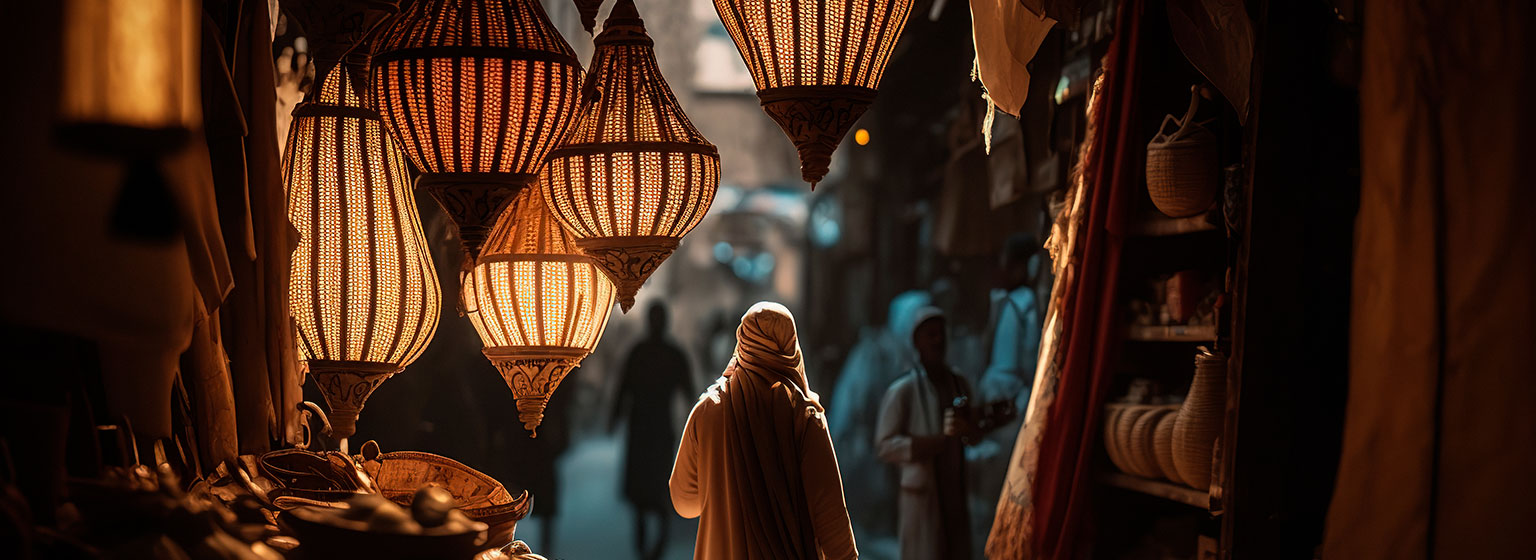
Local handicrafts
The key to further discovering the country’s culture is to explore its handicrafts, which have evolved from the simple manufacture of everyday necessities to the creation of designer items, highly acclaimed by tourists, such as leather goods, rugs, jewellery, ceramics and cast iron goods, among many others.
Among the most important and oldest crafts is the tanning and working of leather in the typical tanneries of Fez. The best-known workshop is the Chouwara shop, with its large, colourful wells, which is one of the most famous in the city.
History and Culture
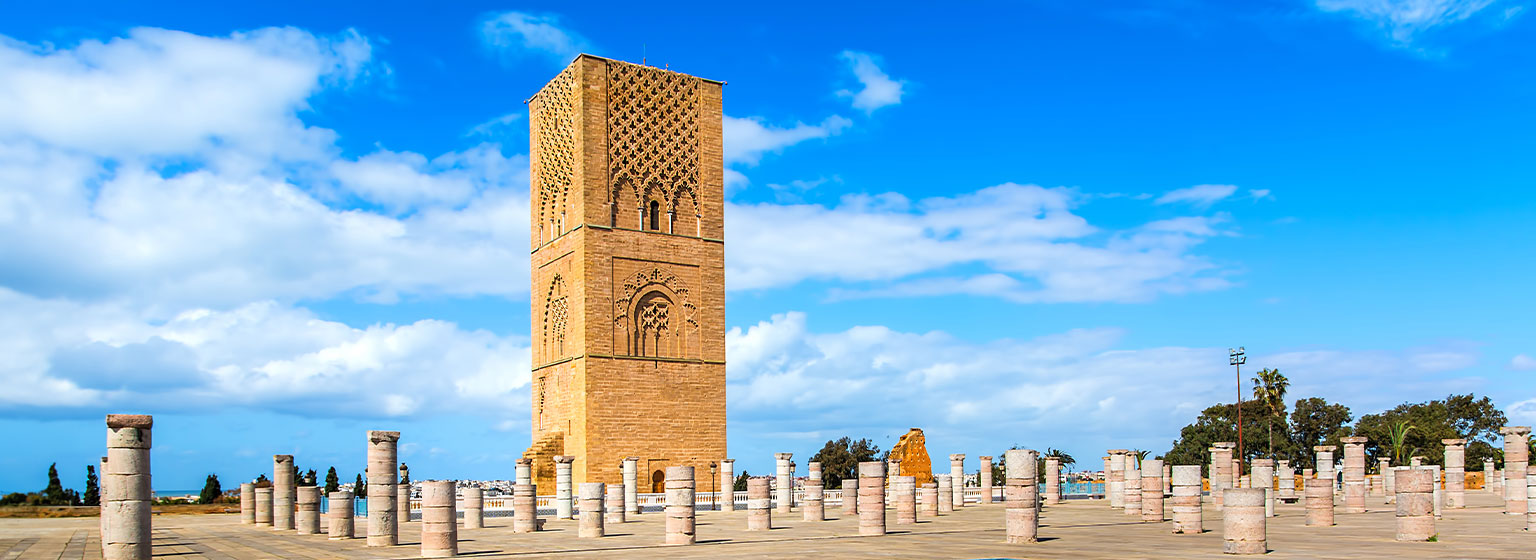
Mausoleum of Mohammed V
Morocco’s historical, cultural and artistic heritage is among the richest in the world. The entire city of Rabat has been declared a UNESCO World Heritage Site, due to the great beauty of attractions such as the Mausoleum of Mohammed V, the Hassan Tower and the archaeological site of Chellah, among others.
In Tetouan, also declared a World Heritage Site by UNESCO, it’s worth visiting its Archaeological Museum, with pre-Hispanic and pre-Islamic collections that give you an insight into the history of the region. Very interesting!
Other notable museums include the Villa Harris Museum in Tangier, with many works by international artists such as Jacques Majorelle; the Dar Batha Museum in Fez, with pieces of popular craftsmanship; and the Dar Jamaï National Music Museum, where you can immerse yourself in African music, one of the country’s richest and most important cultural expressions.
We also recommend attending one of the many events held throughout the year, such as the Tan-Tan Moussem, where more than 30 southern tribes come together for a grand gathering of camel racing, music and dance. This event was declared Intangible Cultural Heritage of Humanity in 2008 and is a fantastic experience.
Cuisine
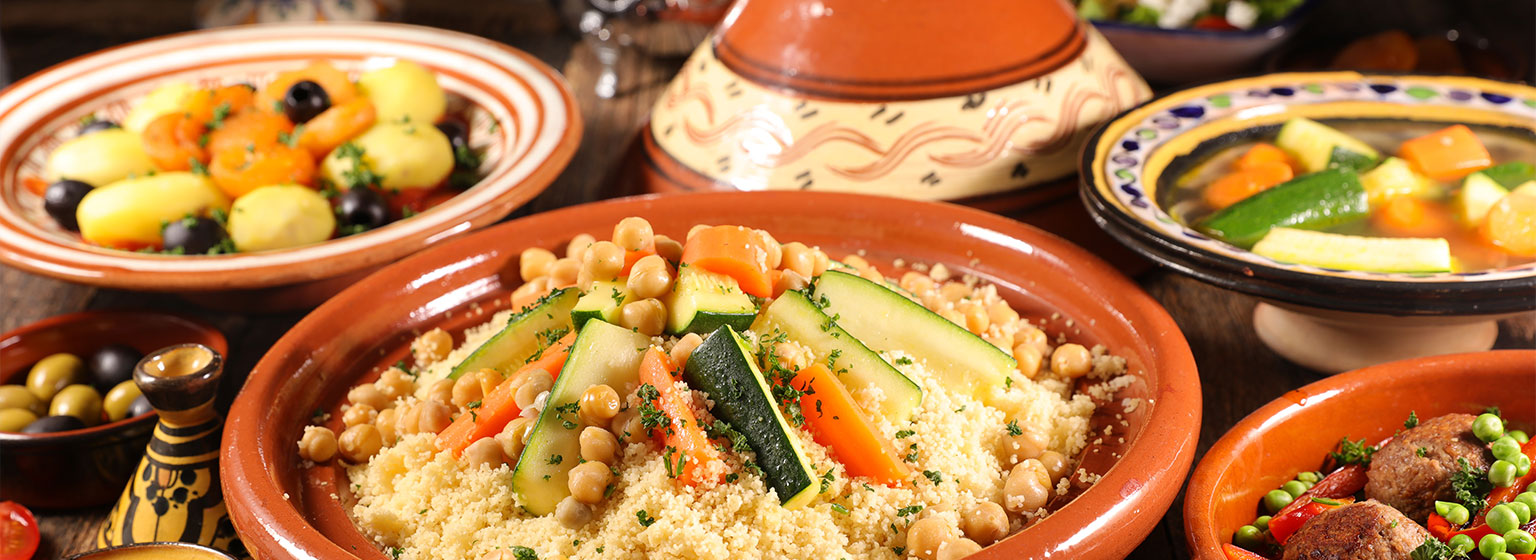
Couscous
Moroccan cuisine is very different from European cuisine, which makes it very attractive to visitors. It is based on a mixture of unique and very characteristic flavours. Couscous and tagine, made from stewed meat and vegetables, are two of the most traditional dishes.
Harira is a traditional vegetable soup usually eaten during Ramadan, while bissara is a simple but deeply rooted bean purée, and bastela is a puff pastry filled with meat and vegetables. Simply delicious!
Don’t leave without trying their iconic sweets such as chebakia, which is made from flour, egg, butter and roasted nuts; and briwat, a peanut and dulce de leche-filled pastry that’s sure to wow your taste buds.
Sustainability
Today, Morocco is one of the leading countries in sustainable tourism. Its wide variety of landscapes, beaches, mountains, deserts and urban centres are maintained with absolute ecological responsibility.
To encourage environmental commitment in the tourism sector, the Moroccan government has created certain labels, such as the “Green Key” for hotels or the “Blue Flag” for beaches, which guarantee responsible spaces for those who obtain them.
One of Morocco’s most notable achievements in sustainability is the creation of wastewater treatment plants in several cities, such as Agadir, Rabat and Marrakech, to irrigate green spaces and golf courses.
Have we convinced you? Book your next trip to Morocco now!





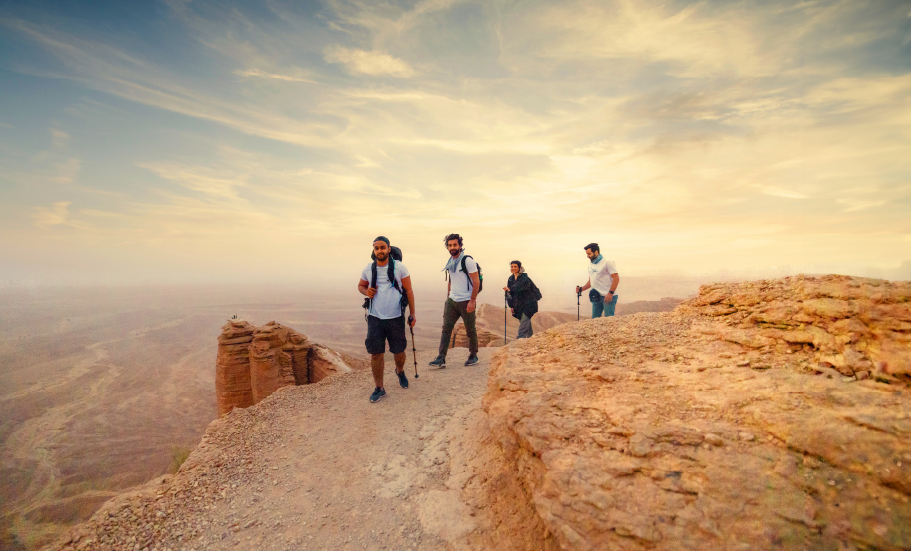


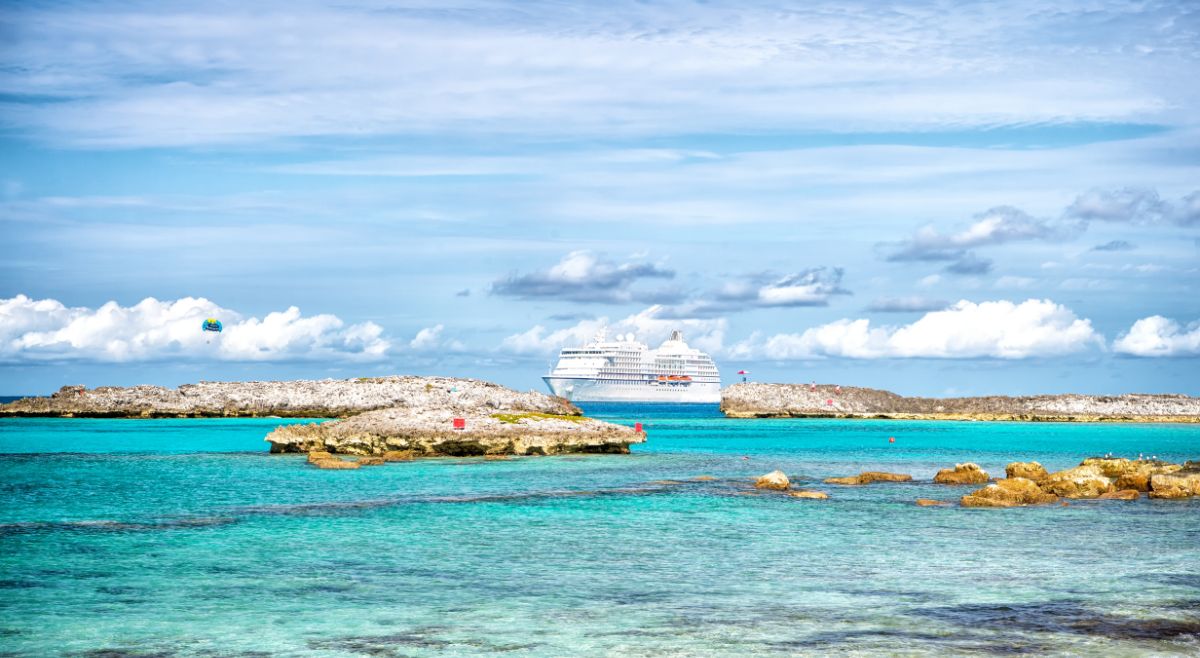
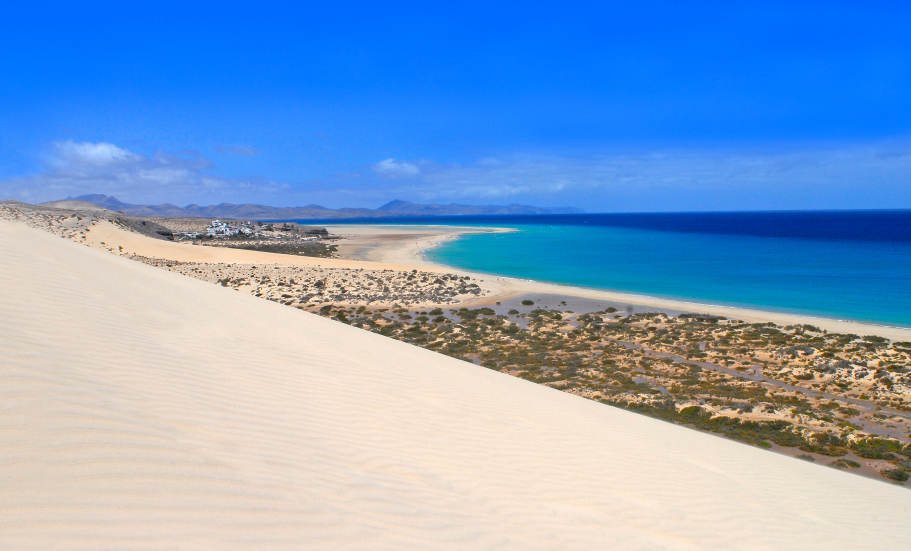
0 comments